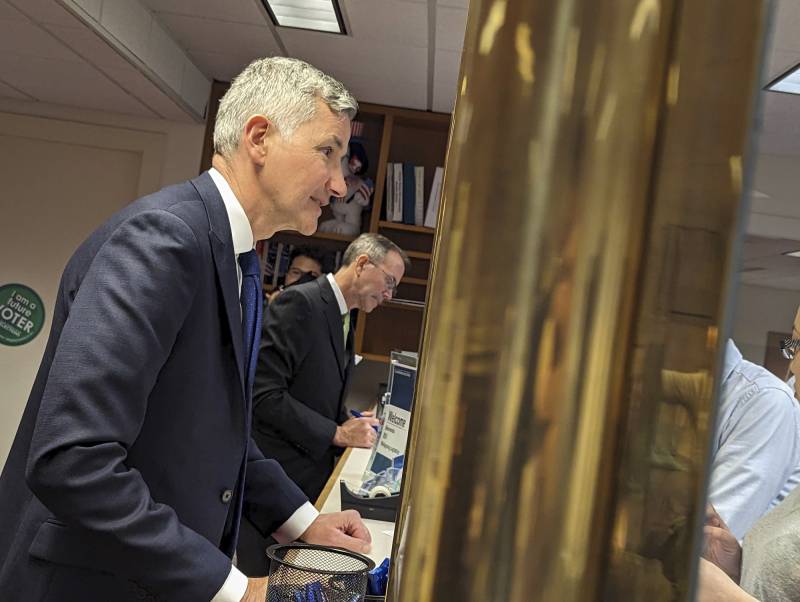“The money matters,” Kang said. “And the more competitive the election — the more partisan, the more politicized — the more the money comes into the elections and affects judges.”
Judges sentencing more punitively have largely hurt Black and brown communities, said Tinisch Hollins, executive director of Californians for Safety and Justice, a criminal justice reform group. During the era of the three-strikes law, the state’s prison population grew so large it caused “irreversible damage to the community,” according to Hollins.
Putting more people in prison just leads to higher rates of crime, she said.
“We have evidence — decades and decades of evidence and research — not just from crime data, but in looking at recidivism rates and whether or not these tough-on-crime approaches actually lead to more safety,” she said. “It didn’t.”
In a post on its website, Stop Crime Action accused Thompson of releasing an alleged drug dealer pending trial last year “despite the fact police arrested the defendant with enough fentanyl to kill as many as 85,400 people.” In an opinion piece for a neighborhood newspaper, the group’s leader, Frank Noto, called the drug dealer’s release a “catastrophic failure.”
In an interview, Thompson said he could speak in a limited fashion on matters of public record. He explained he imposed stricter requirements on the alleged drug dealer than were handed to him in a court recommendation.
The judicial canons forced the candidates to tiptoe around questions about their records at a recent debate hosted by Stop Crime Action. Roland and Zecher told KQED they are cognizant of trying to represent their worldview to voters while staying within the bounds of judicial ethics rules. Zecher, a civil attorney, was appointed by Newsom to serve on the board of UC Law San Francisco. Roland, who has been a prosecutor for 22 years, is an assistant district attorney in Jenkins’ office.
“I believe that we’re all discovering that the judges play a role in what’s going on in our streets,” Zecher said. “They are the public guardians. And we do want to make sure that our judges are looking at the accountability factor for bad actors on our streets.”
Roland said San Francisco is less safe now than when she was attending Lowell High School.
“This is just not the same city. And my elderly mother, she won’t even walk down the street because she’s scared,” she said. “I want to have my voice heard, and I want to make a difference so that people can feel safe on the street.”
Retired San Francisco Superior Court Judge Lillian Kwok Sing, who supports the incumbents, said she’s concerned the Stop Crime Action campaign may push the boundaries of democracy.
“This Stop Crime (group) is a test on the courts in general,” she said.
A presiding judge must assign superior court judges to particular courts. Given Stop Crime Action’s support of the current challengers, retired San Francisco Superior Court Judge Harold Kahn, who supports Begert, said any presiding judge may not ever assign Zecher and Roland to a courtroom that handles criminal conduct if they win.
“Let me ask you to put your feet in the shoes of somebody who was accused of being a drug dealer, and you walk into Judge Zecher’s courtroom,” Kahn said. “Do you believe you are going to be treated impartially? I submit you won’t. At least not necessarily because of what he has said, but because of what he has allowed himself to represent.”

